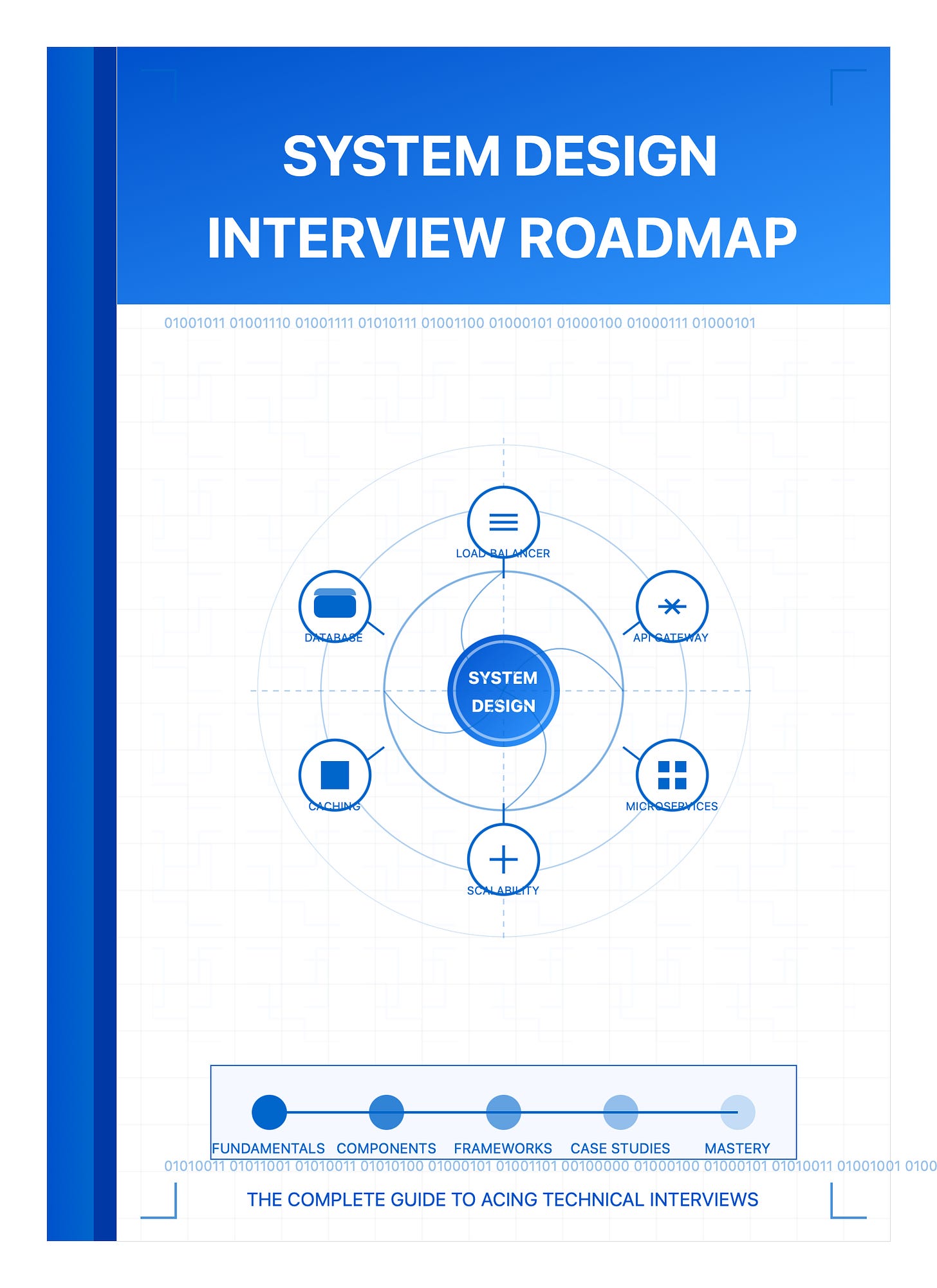System Design Fundamentals - E-Book
Master System Design Interviews with Real-World Examples and Visual Learning
Struggling with system design interviews? This comprehensive guide transforms complex distributed systems concepts into digestible, visual lessons using relatable analogies. Learn how Netflix delivers billions of hours of video, how CAP theorem works through pizza delivery scenarios, and master the 5-step interview framework used by top tech companies.
What You Get:
19 battle-tested system design topics with visual diagrams
Real-world case studies from Netflix, Amazon, Google, and more
Practical interview frameworks and decision trees
Performance calculations and trade-off analysis
Implementation examples with actual code
Perfect for software engineers, system architects, and anyone preparing for senior technical roles at major tech companies.
Buy & Download E-book : Link
Book Summary
This foundational guide covers essential system design concepts through practical examples and visual learning. The book uses a unique approach combining real-world analogies (pizza delivery for CAP theorem, café operations for message queues) with actual implementation details from major tech companies.
Key themes include understanding trade-offs in distributed systems, making architectural decisions under constraints, and applying theoretical concepts to practical scenarios. Each chapter includes decision frameworks, performance benchmarks, and implementation guidance suitable for both interview preparation and real-world system design.
The content emphasizes visual learning with comprehensive diagrams, flowcharts, and comparison tables that make complex concepts accessible to engineers at all levels.
Table of Contents
Part 1: System Design Fundamentals
System Design Interviews: A Visual Roadmap - 5-step interview framework and common pitfalls
The CAP Theorem Explained with Pizza Delivery Analogies - Consistency, Availability, Partition tolerance trade-offs
Latency vs. Throughput: Understanding the Trade-offs - Performance optimization strategies
5 Key Non-Functional Requirements Every System Designer Should Know - Scalability, performance, reliability, security, maintainability
Back-of-the-Envelope Calculations for System Design - Essential numbers and estimation techniques
System Design Fundamentals: Load Balancing - Algorithms, types, and implementation patterns
Vertical vs. Horizontal Scaling: When to Choose Each - Scaling strategies and decision frameworks
Understanding Network Protocols: HTTP, TCP/IP, UDP - Protocol fundamentals and use cases
API Design Fundamentals: REST vs. GraphQL vs. gRPC - API paradigms and selection criteria
Microservices vs. Monoliths: Visual Decision Guide - Architecture patterns and migration strategies
Load Balancing 101: How Traffic Gets Distributed - Advanced load balancing concepts
Database Basics: SQL vs. NoSQL Decision Tree - Database selection frameworks
Caching Strategies Explained - Cache layers, algorithms, and invalidation
Content Delivery Networks: How Netflix Delivers Movies - CDN architecture and implementation
Message Queues Explained with Café Analogies - Asynchronous communication patterns
Rate Limiting: Protecting Your System from Overload - Rate limiting algorithms and implementation
Proxies vs. API Gateways: Understanding the Differences - Gateway patterns and use cases
Consistency Models in Distributed Systems - Consistency levels and trade-offs
Data Serialization Formats: JSON, Protobuf, Avro - Serialization performance and

